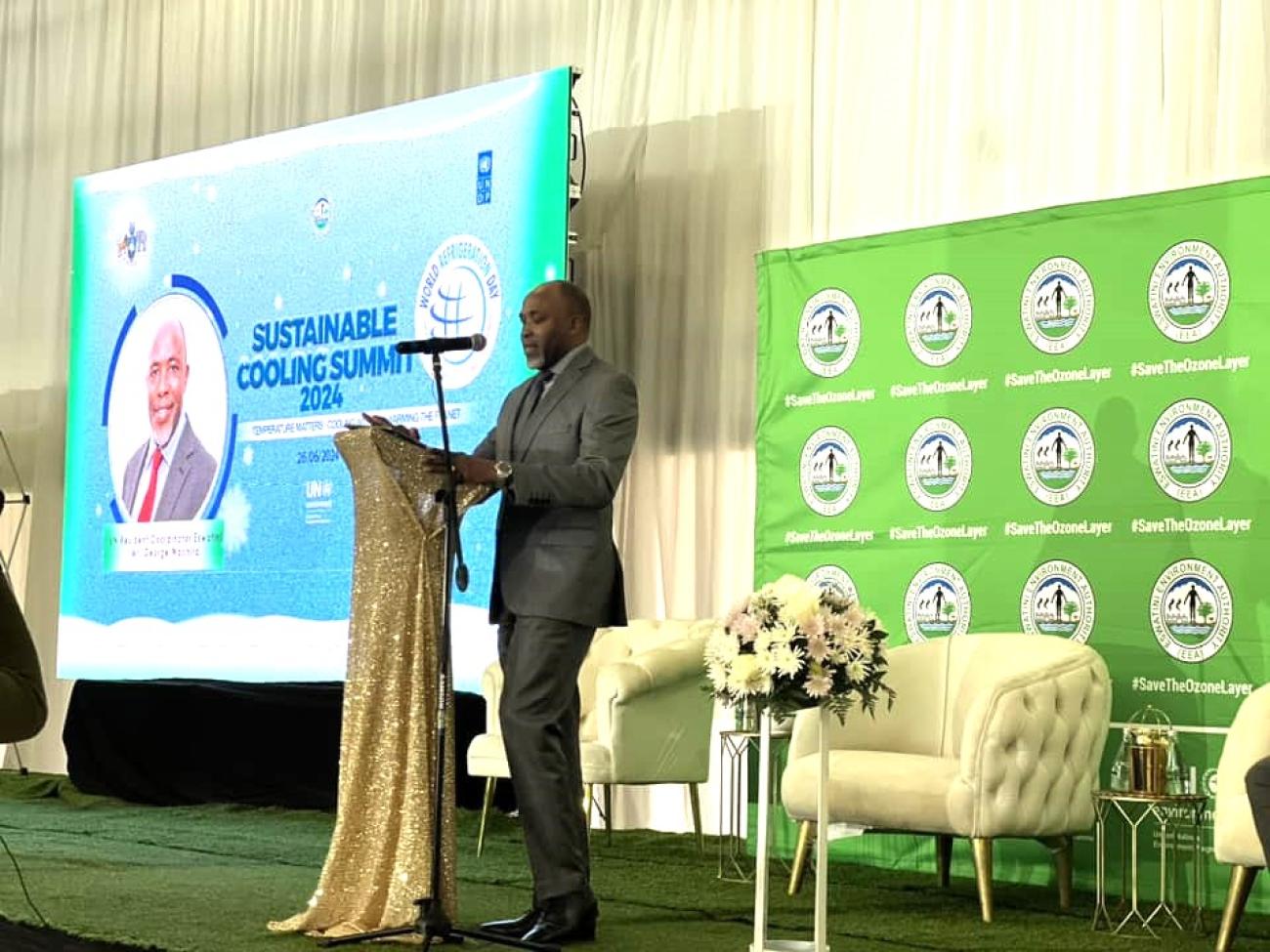On June 26, 2024, the Mavuso Trade and Exhibition Centre in Manzini was abuzz with activity as it played host to the Sustainable Cooling Summit 2024. The event, held on World Refrigeration Day, gathered key stakeholders from the refrigeration and cooling industry, government officials, and international partners to address the pressing challenge of climate change through sustainable cooling solutions.
UN Resident Coordinator, Mr. George Wachira, opened the summit by acknowledging the crucial role played by refrigeration engineers and scientists in enhancing comfort in homes and businesses while mitigating environmental impact. He emphasized the importance of sustainable cooling technologies in combating climate change and praised the collective efforts of the industry in this vital area.
The event featured a keynote address from the Prime Minister, represented by the Minister of Tourism and Environmental Affairs, Ms. Jane Mkhonta-Simelane. She highlighted Eswatini's dedication to sustainable cooling, underscoring the nation's commitment made at COP 28 to reduce cooling-related emissions by 68% by 2050. This pledge aligns with global climate goals and emphasizes the nation's resolve to integrate sustainability into cooling systems nationwide.
Key Highlights and Achievements
1. Climate Crisis and Action:
Mr. Wachira spoke passionately about the urgent need to address the climate crisis, citing May 2024 as the hottest May in recorded history. He called for quick, decisive action to mitigate climate chaos, echoing the sentiments of UN Secretary-General António Guterres on the importance of climate justice.
2. Lessons from the Montreal Protocol:
Reflecting on past successes, Mr. Wachira highlighted the Montreal Protocol and the Kigali Amendment as exemplary models of global cooperation. These agreements have significantly regulated ozone-depleting substances, providing valuable lessons for current climate initiatives.
3. Eswatini's Leadership:
Both speakers lauded Eswatini's proactive measures in phasing out chlorofluorocarbons (CFCs) and hydrochlorofluorocarbons (HCFCs) ahead of schedule. The successful elimination of these harmful substances demonstrates Eswatini's leadership and commitment to environmental sustainability.
4. Partnership with Italy:
Mr. Wachira announced a new partnership with the Republic of Italy, supported by UNDP, aimed at combating climate change. This EUR 7 million collaboration will focus on energy security, environmental protection, and resilience building, exemplified by the Greening of the Raleigh Fitkin Memorial Hospital project.
5. Long-Term Low Emission Development Strategy (LT-LEDS):
Eswatini is developing a comprehensive LT-LEDS, spearheaded by the Ministry of Tourism and Environmental Affairs with UNDP support. This strategy aims to transition the nation to a low-carbon, climate-resilient economy by 2050, highlighting the importance of stakeholder engagement and innovation.
6. Plastic Ban Initiative:
Ms. Mkhonta-Simelane announced an imminent ban on plastic carrier bags starting December 2024, a bold step towards reducing environmental degradation and mitigating climate change. This initiative complements the goals of the cooling sector and reinforces Eswatini's commitment to sustainable practices.
Call to Action
The summit concluded with a call to action for all stakeholders to continue their efforts in fostering sustainable development. The emphasis was on innovation, inclusivity, and collaboration to ensure a greener and more resilient future. The announcement of a National Day of Action on 26 July 2024, further underscored the collective effort required to maintain a clean and healthy environment.
The Sustainable Cooling Summit 2024 served as a pivotal moment for Eswatini, demonstrating the nation's commitment to climate action and sustainable cooling solutions. It showcased the power of collaboration and the critical role of innovative technologies in addressing one of the most pressing challenges of our time.
is story captures the essence of the speeches and key messages delivered at the summit, emphasizing Eswatini's commitment to climate action and sustainable cooling solutions.













